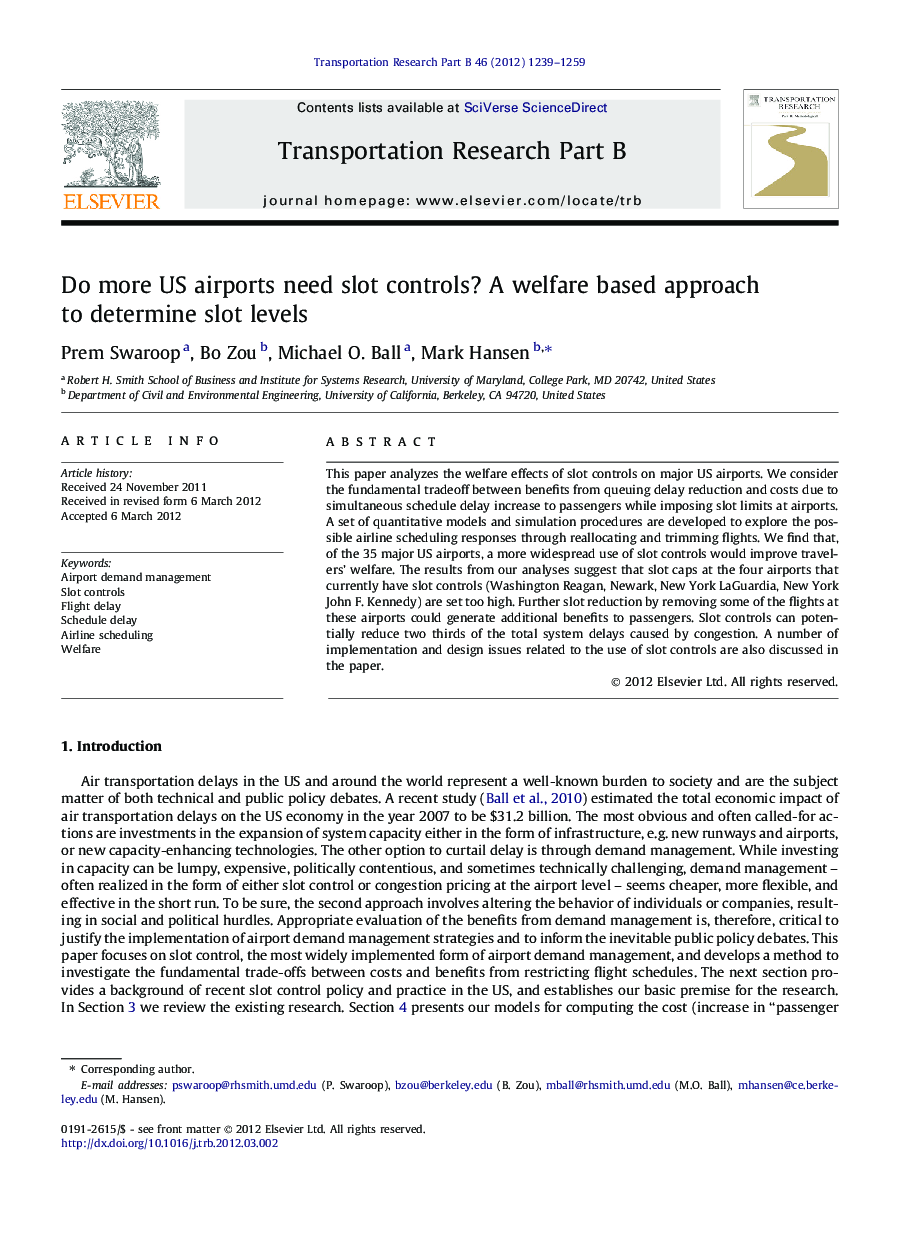| Article ID | Journal | Published Year | Pages | File Type |
|---|---|---|---|---|
| 1132136 | Transportation Research Part B: Methodological | 2012 | 21 Pages |
This paper analyzes the welfare effects of slot controls on major US airports. We consider the fundamental tradeoff between benefits from queuing delay reduction and costs due to simultaneous schedule delay increase to passengers while imposing slot limits at airports. A set of quantitative models and simulation procedures are developed to explore the possible airline scheduling responses through reallocating and trimming flights. We find that, of the 35 major US airports, a more widespread use of slot controls would improve travelers’ welfare. The results from our analyses suggest that slot caps at the four airports that currently have slot controls (Washington Reagan, Newark, New York LaGuardia, New York John F. Kennedy) are set too high. Further slot reduction by removing some of the flights at these airports could generate additional benefits to passengers. Slot controls can potentially reduce two thirds of the total system delays caused by congestion. A number of implementation and design issues related to the use of slot controls are also discussed in the paper.
► We present ways to determine if slot control is justified and the number of slots. ► Slot controls are justified at 16 airports in the US, while only four use them now. ► Slot controls benefit passengers even at less busy airports with peaked schedules. ► The four slot controlled US airports have slot limits that are too high. ► Slot controls could potentially reduce 2/3 of congestion-related system delays.
